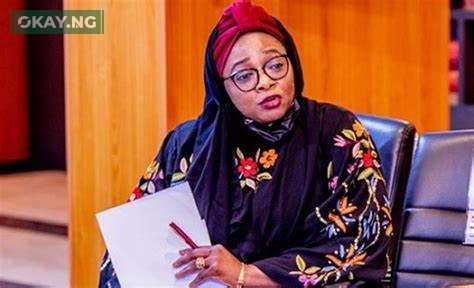Sowards improving the health and livelihoods of Nigerian women, the Federal Ministry of Women Affairs (FMoWA) has forged a crucial alliance with key players in the energy sector. The ambitious initiative aims to eradicate the premature deaths caused by the harmful smoke emanating from firewood and traditional cooking stoves, while simultaneously addressing the pervasive issue of energy poverty that disproportionately affects women across the nation.
Speaking at a multi-stakeholder engagement held in Abuja, the Minister of Women Affairs, Imaan Sulaiman-Ibrahim, conveyed her strong optimism that this collaborative effort would finally break the shackles of energy poverty for Nigerian women. She highlighted the dual approach of the initiative, which includes promoting clean home solutions alongside the deployment of solar-powered equipment for agricultural development.
“The statistics are stark and heartbreaking,” stated Mrs. Sulaiman-Ibrahim. “Over 80,000 women in Nigeria tragically lose their lives prematurely each year due to the toxic fumes released by firewood and traditional cooking methods. This initiative is a direct response to this crisis, with the resolute goal of reaching women in every single one of Nigeria’s 774 local government areas.”
The Minister passionately articulated the profound social injustice inherent in energy poverty. “Energy poverty is far more than a technical challenge; it is a fundamental social injustice,” she emphasized. “It traps women in a vicious cycle of unpaid labor, economic dependence, and severe health risks. In numerous communities, women endure the arduous task of spending up to eight hours every week simply gathering firewood.”
The envisioned solution, according to Mrs. Sulaiman-Ibrahim, is comprehensive and far-reaching. “Through this transformative initiative, we are committed to providing universal access to clean and sustainable energy. This includes the deployment of solar home systems, the adoption of clean cooking technologies, the provision of solar water pumps, the introduction of e-mobility tools, and a range of other productive-use appliances that will reach every corner of our nation.”
Echoing this commitment, the Managing Director of the Rural Electrification Agency (REA), Abba Abubakar-Aliyu, shed light on existing efforts and future prospects. He noted the significant impact of the $550 million Nigerian Electrification Project, which has already positively affected approximately eight million Nigerians and supported 35,000 businesses, with a commendable 12,000 of these being women-led enterprises.
Read Also: Nigeria Targets Solar Panel Self-Sufficiency Amidst N200bn Import Costs
Mr. Abubakar-Aliyu further revealed a substantial boost to these efforts, stating that President Bola Tinubu has approved a $750 million off-grid project. Of this significant investment, $410 million has been specifically allocated for the development of mini-grids, while $240 million is earmarked for the deployment of solar home systems. “This represents a tremendous opportunity for us to replicate the successes we have seen and to ensure that we scale this vital intervention across the entire country,” he affirmed.
Representing the National Agency for Science and Engineering Infrastructure (NASENI), the Executive Vice Chairman/Chief Executive Officer, 1 Khalil Halilu, through Olayode Olasupo, the director of Manufacturing Services, underscored the profound impact of energy poverty on women’s advancement. Mr. Halilu described it as “one of the greatest barriers to the progress of women, particularly those residing in rural communities.”
Mr. Olasupo elaborated on the multifaceted nature of energy poverty, explaining that it encompasses “a lack of access not only to clean energy for cooking but also to reliable energy for lighting and other essential social systems. This consequently restricts access to critical services such as healthcare and education, severely limits economic opportunities, and significantly compromises the overall health and safety of women.”
This collaborative initiative between the Federal Ministry of Women Affairs and key energy sector stakeholders signifies a powerful and much-needed step towards not only saving lives but also empowering Nigerian women economically and socially. By prioritizing clean energy solutions and directly addressing the burdens imposed by traditional cooking methods, Nigeria is poised to make significant strides in achieving energy equity and fostering a healthier, more prosperous future for its women.













